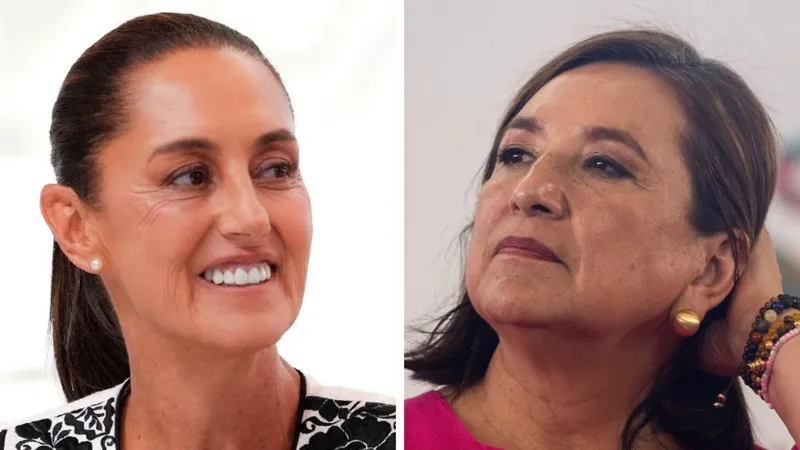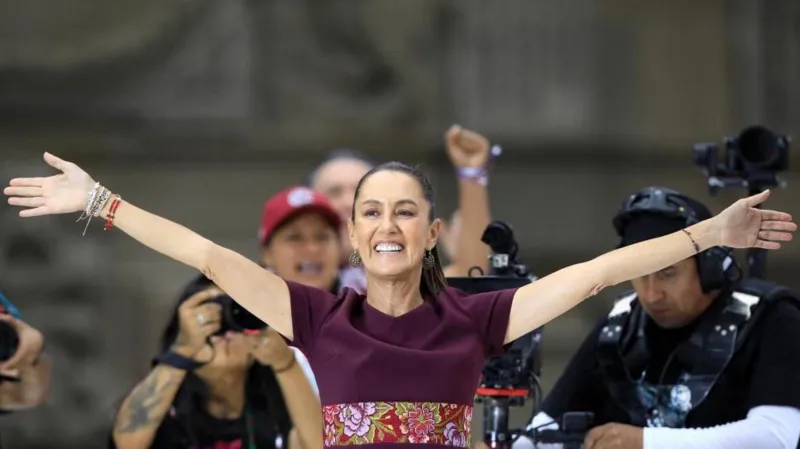
As Mexicans head to the polls, the election has been overshadowed by a wave of violence, including the recent assassination of mayoral candidate Jorge Huerta Cabrera in Puebla state. Cabrera, a candidate from the Green Party, was killed at a political rally in Izucar de Matamoros. This attack, which also injured his wife and a colleague, marks the latest in a series of violent incidents targeting political candidates. More than 20 local candidates have been killed in the lead-up to these elections, highlighting the significant security challenges facing the country.
The elections are not only marked by violence but also by a historic milestone: the country is almost certain to elect its first female president. The leading candidates are Claudia Sheinbaum and Xóchitl Gálvez, who are far ahead in the polls compared to the only male candidate, Jorge Álvarez Máynez. Voters will also be electing all members of Mexico's Congress, governors in eight states, and the head of Mexico City's government.
Claudia Sheinbaum, a 61-year-old scientist, served as mayor of Mexico City from 2018 to 2023. She has the backing of the outgoing president, Andrés Manuel López Obrador, who has been in power since 2018. Due to Mexico's constitutional limits, López Obrador cannot seek re-election, but his high approval ratings, close to 60%, have significantly bolstered Sheinbaum’s campaign. Sheinbaum is a member of López Obrador's Morena party, which has been credited with lifting millions out of poverty over the past six years. The party boasts achievements such as doubling the minimum wage, though economists point out that increased remittances from Mexicans abroad have also contributed to reducing poverty.
Sheinbaum has emphasized her independence from López Obrador, despite her close association with him. She promises to build on what she considers the many achievements of his administration while maintaining her own vision for the country's future. However, questions remain about how autonomous her leadership would be, given López Obrador's dominant influence.

Xóchitl Gálvez, a 61-year-old senator and businesswoman, is Sheinbaum's main rival. Gálvez represents a broad coalition of parties united in their desire to end Morena's rule. She has been vocal about the rise in violence in Mexico, criticizing López Obrador's "hugs not bullets" strategy, which aimed to reduce violence through social programs rather than military action. Gálvez has promised to confront crime more aggressively, pledging better pay for police and increased investment in security. However, she has provided few details on her specific strategies to combat powerful criminal groups.
Gálvez's campaign has also focused on strengthening democratic institutions, which she claims López Obrador has undermined. She has accused the outgoing president of being authoritarian and damaging Mexico's democratic frameworks, such as the constitutional court and the National Electoral Institute.
The stakes are high in this election, with significant implications for Mexico's future direction. The winner will take office at the end of September, inheriting a country grappling with widespread violence, economic challenges, and the need for institutional reforms.
Despite the overshadowing violence, the elections mark a pivotal moment for Mexico, potentially ushering in its first female president. As voters cast their ballots, the country and the world watch closely to see how the new leadership will address the pressing issues facing the nation and steer Mexico through its next chapter.















